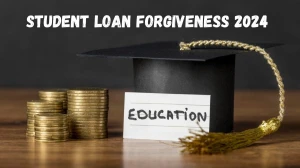
How to Get the Student Loan Interest Deduction? Early Repayment and Education Loan Benefits
Explore this page to learn about education loans and how to maximize tax benefits by claiming deductions under Section 80E. Check the eligibility criteria, repayment strategies, and more.
by Swetha P
Published Apr 19, 2024 | Updated Apr 19, 2024 | 📖 4 min read
How to Get the Student Loan Interest Deduction?
The student loan interest deduction is claimed under Section 80E of the Income Tax Act followed by these guides:
Education Loan:
- The candidate must ensure taking an educational loan from a financially recognized institution, bank, or any approved charitable organization, NBFC.
Begin Repayment:
- Start repaying the loan interest, and a deduction begins from the year when you start repaying loan interest.
Certificate:
- The interest certificate is obtained from a bank or financial institution. The certificate details explain the interest during the financial year and the principal portion of the EMI paid.
Tax Return:
- In the education loan under Section 80E, include the interest paid off when you fill out your income tax return and ensure that you choose old tax rules to claim the deduction.
Save Records:
- Maintain every document associated with educational loans and proof of interest payments for any future verification by tax authorities.
Early Repayment and Education Loan Benefits
Education loan offers several advantages of early repayment:
- Financial Liberty: Becoming debt-free can preferably, permit you to have financial flexibility, invest, help you to save, and spend as you need.
- Lower Interest: Early repaying of the educational loan can lower the total interest paid over the loan tenure.
- Credit Score: Early closure and timely repayment, can thoroughly influence your credit score and make it easier to secure your credit facilities or future loans.
- Education Proof: Confirming the loan with the required documents was taken will help with higher education, such as an admission letter and educational institution fee receipts.
- Eligibility for Larger Loan: Debt-free can improve and enhance the chance of qualifying for larger loans like home loan eligibility in the future.
- Debt Elimination: After understanding that you have cleared a substantial financial obligation, debt elimination provides achievement and peace.
- Documentation: it is necessary to submit the required documentation for claiming the 80E Deduction that is processed further to reduce the loan interest.
- Interest Certificate: The specified interest paid during the year of education is certified by the lender.
- Statement: Obtain a loan statement from the respective bank or financial institution that describes the principal portions of EMI paid and the interest during the financial year.
- Tax Return Form: Ensure using the applicable income tax return form and while filling your taxes under Section 80E, mention the interest amount.
Comparing Section 80E with Other Tax Deductions
For student loan interest Section 80E permits deductions and other sections like 80C and 80D offer deductions for various expenses
- Section 80C: This Section provides deductions for investments with instruments like ELSS, PPF, and life insurance premiums.
- Section 80D: This Section 80D offers deductions for premiums for health insurance paid by self, spouse, or dependent children.
- Section 80E: Interest paid particularly caters to deductions on education loans, providing individuals with unique tax benefits to pursue higher education or helping their family members with education.
- No Deduction Limit: Some other sections, like the 80E section, do not have a maximum limit for the deduction, enabling you to claim the whole interest amount paid.
How to Maximize Tax Benefits on Education Loans?
Under Section 80E, consider the following processes to maximize the tax benefits on education loans:
Tenure Utilization:
- if you can achieve a higher return on investments while investing the extra funds by taking advantage of tax benefits, consider extending the loan repayment to the entire 8-year tenure.
Interest Payments Track: Maintain a detailed record of interest payments from the lender each year and acquire interest certificates to ensure deduction claims.
Old Tax Regime:
- Under Section 80E, if you are eligible for deductions select the old tax regime to claim this deduction while filing your taxes.
Loan Repayment:
- Schedule your loan repayment plan to ensure that within 8 years, the loan should paid off to utilize the tax benefits fully available under Section 80E.
Tax Advisor:
- For personalized guidance tailored to your financial situation, consult a financial planner or a tax advisor who can recommend you on maximizing tax advantages and manage your finances effectively.
Plan your loan repayment strategy that can assist you in utilizing most of the tax benefits that are obtainable on education loans.
How to Get the Student Loan Interest Deduction? - FAQs
1. What is Section 80E education loan deduction?
For higher studies on education loans, section 80E offers a tax deduction on the interest paid.
2. Can I claim an education loan deduction?
No, the education loan deduction is available only for those under Section 80E opting for the old tax regime.
3. Is anyone can claim an education loan deduction?
Individuals repaying education loans for themselves, legal wards spouses, or children can claim the deduction.
4. What allows higher education for an education loan deduction?
Higher education includes post-secondary, regular courses, and vocational, pursued after senior secondary exams.





